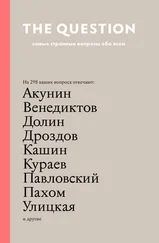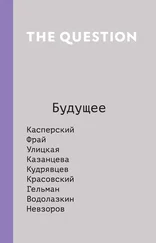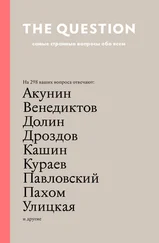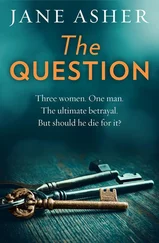30
This was what Uncle Julius told us:
“When I was a young student in Moscow, in the thirties, I saw the oldest man in the world. I was in a biology class, it was in a gigantic amphitheater, hundreds of rows, thousands of students. They brought in an old man who couldn’t walk, so two comrades carried him and he had his arms over their shoulders. His feet were dangling between them, but he was all curled up like a baby. They said he was a hundred and fifty-eight years old and from somewhere in the Caucasus. They put him sideways on the desk and he started crying like a baby, so they gave him a stuffed toy — a cat, I think, but I can’t be certain, because I was sitting all the way up in one of the last aisles. I was looking at him as if through the wrong side of a telescope. And the teacher told us that the old man cried all the time, ate only liquid foods, and couldn’t bear being separated from his favorite toy. The teacher said that he slept a lot, didn’t know his name and had no memories. He could say only a couple of words, like water, poo-poo and such. I figured out then that life is a circle, you get back right where you started if you get to be a hundred and fifty-eight years old. It’s like a dog chasing its own tail, all is for naught. We live and live, and in the end we’re just like this boy [he pointed at me], knowing nothing, remembering nothing. You might as well stop living now, my son. You might just as well stop, for nothing will change.”
31
When I woke up, after a night of unsettling dreams, the suitcases were agape and my parents were packing them with wrinkled underwear and shirts. Uncle Julius came up with a jar of honey as big as my head and gave it to my father. He looked at the photo of Mljet and then put the tip of his finger at the point in the upper-right corner, near the twin lakes, which looked like gazing eyes. “We are here,” he said.
32
The sun had not risen yet from behind the hill, so there were no shadows and everything looked muffled, as if under a sheet of fine gauze. We walked down the narrow road and the asphalt was cold and moist. We passed a man carrying a cluster of dead fish, with the hooks in their carmine gills. He said: “Good morning!” and smiled.
We waited at the pier. A shabby boat, with paint falling off and Pirate written in pale letters on the prow, was heading, coughing, toward the open sea. A man with an anchor tattooed on his right arm was standing at the rudder. He had a torn red-and-black flannel shirt, black soccer shorts, and no shoes — his feet were bloated and filthy. He was looking straight ahead toward the ferry that was coming into the harbor. The ferry slowed down to the point of hesitant floating, and then it dropped down its entrance door, like a castle bridge, with a harsh peal. It was a different ship than the ship we had come on, but the same man with the hobbling-boat shirt said: “Welcome!” again, and smiled, as if recognizing us.
We passed the same islands. They were like heavy, moulded loaves of bread, dropped behind a gigantic ship. On one of the islands, and we passed it close by, there was a herd of goats. They looked at us mildly confounded, and then, one by one, lost interest and returned to grazing. A man with a camera, probably a German tourist, took a picture of the goats, and then gave the camera to his speckle-faced, blue-eyed son. The boy pointed the camera toward the sun, but the man jokingly admonished him, turning him, and the camera, toward us, while we grinned at him, helpless.
33
It took us only four hours to get home from the coast and I slept the whole time, oblivious to the heat, until we reached Sarajevo. When we got home, the shriveled plants and flowers were in the midst of the setting-sun orange spill. All the plants had withered, because the neighbor who was supposed to water them died of a sudden heart attack. The cat, having not been fed for more than a week, was emaciated and nearly mad with hunger. I would call her, but she wouldn’t come to me; she would just look at me with irreversible hatred.
THE LIFE AND WORK OF ALPHONSE KAUDERS
Alphonse Kauders is the creator of The Forestry Bibliography, 1900–1948 , published by the Engineers and Technicians Association, in Zagreb, 1949. This is a special bibliography related to forestry. The material is classified into seventy-three groups and encompasses 8,800 articles and theses. Bibliographical units are not numbered. The creator of The Forestry Bibliography was the first to catalog the entire forest matter in a single piece of work. The work has been viewed as influential.
Alphonse Kauders had a dog by the name of Rex, whose whelp, in the course of time, he gave to Josip B. Tito.
Alphonse Kauders had a mysterious prostate illness and, in the course of time, he said: “Strange are the ways of urine.”
Alphonse Kauders said to Rosa Luxemburg: “Let me penetrate a little bit, just a bit, I’ll be careful.”
Alphonse Kauders said: “And what if I am still here.”
Alphonse Kauders was the only son of his father, a teacher. He was locked up in a lunatic asylum, having attempted to molest seven seven-year-old girls at the same time. Father, a teacher.
Alphonse Kauders said to Dr. Joseph Goebbels: “Writing is a useless endeavor. It is as though we sign every molecule of gas, say, of air, which — as we all know — cannot be seen. Yet, signed gas, or air, is easier to inhale.”
Dr. Joseph Goebbels said: “Well, listen, that differs from a gas to a gas.”
Alphonse Kauders was the owner of the revolver used to assassinate King Alexander.
One of Alphonse Kauders’s seven wives had a tumor as big as a three-year-old child.
Alphonse Kauders said: “People are so ugly that they should be liberated from the obligation to have photos in their identity cards. Or, at least, in their Party cards.”
Alphonse Kauders desired, passionately, to create a bibliography of pornographic literature. He held in his head 3,700 pornographic books. Plus magazines.
Richard Sorge, talking about the winds of Alphonse Kauders, said: “They sounded like sobs, sheer heartrending sorrow, which, resembling waves, emerged from the depths of one’s soul, and, then, broke down, someplace high, high above.”
Alphonse Kauders, in the course of time, had to crawl on all fours for seven days, for his penis had been stung by seventy-seven bees.
Alphonse Kauders owned complete lists of highly promiscuous women in Moscow, Berlin, Marseilles, Belgrade, and Munich.
Alphonse Kauders was a Virgin in his horoscope. And in his horoscope only.
Alphonse Kauders never, never wore or carried a watch.
There are records suggesting that the five-year-old Alphonse Kauders amazed his mother by making “systematic order” in the house pantry.
Alphonse Kauders said to Adolf Hitler, in Munich, as they were guzzling down their seventh mug of beer: “God, mine is always hard when it is needed. And it is always needed.”
Alphonse Kauders:
a) hated forests
b) loved to watch fires
These proclivities were happily united in his notorious obsession with forest fires, which he would watch, with great pleasure, whenever he had a chance.
Josip B. Tito, talking about the winds of Alphonse Kauders, said: “They sounded like all the sirens of Moscow on May 1, the International Labor Day.”
Alphonse Kauders impregnated Eva Braun, and she, in the course of time, delivered a child. But after Adolf Hitler began establishing new order and discipline and seducing Eva Braun, she, intoxicated by the Führer’s virility, sent the child to a concentration camp, forcing herself to believe it was only for the summer.
Читать дальше












